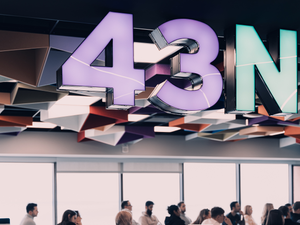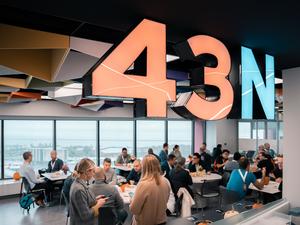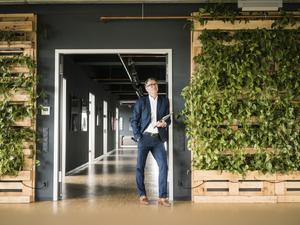
Like it or not, artificial intelligence is joining the Austin workforce. Seventy-one percent of U.S. executives said their organization is already using AI in some capacity, per Accenture’s recent survey.
While there’s been lots of buzz about which jobs are susceptible to automation, what’s drawn less attention is the fact that the bigger effect of intelligent technologies in the workplace is the reconfiguration of positions.
As tasks evolve and worker capabilities are augmented by machines, virtually everyone’s job is changing, and all workers – from nurses and education administrators to computer programmers – need to learn to collaborate with intelligent technologies.
According to Accenture’s workforce research, the blend of skills required by each worker is becoming more complex. The skills that are rising in importance across almost every job category are uniquely human, including: creativity, socio-emotional intelligence, complex reasoning, and sensory perception. It’s not just those in STEM careers, but everyone needs high-order cognitive capabilities, as well as social skills. Increasingly, for instance, engineers need to be savvy communicators, and creatives need to be highly analytical.
The problem is that the current education and corporate learning systems are ill-equipped to impart many of the crucial skills that tomorrow’s workforce needs. By their nature, such skills are acquired through practice and experience, often over long periods of time.
From business to government and academia, leaders must adopt new ways of skilling and help people sharpen their human advantage in the age of AI.
Turning to the advancement of neuroscience, experiential learning — including on-the-job training, design thinking and simulation — is particularly effective for adults, because learners are active participants, leading to faster and deeper learning.
We must expand internships and apprenticeships and use technologies like AI and virtual reality to make learning more immersive, engaging and personalized. The Texas Workforce Commission’s Internship Challenge is a positive step in the right direction.
Additionally, we need to design metrics and incentives that encourage the blending of skills in each person, shifting the focus on individuals from measuring success on the number of graduates and other macro-level outputs of institutions. The demand for more creativity doesn’t necessarily mean we need to graduate more ballerinas and sculptors; it means that each of us must be more creative in our daily activities. Universities should make greater efforts to encourage cross-fertilization of ideas and multi-disciplinary learning opportunities. Corporate trainings should foster a range of skills, especially for workers who do not currently utilize much complex reasoning, creativity and socio-emotional intelligence skills.
Finally, we must bring everyone along to participate in the upside of the innovation economy. Businesses and government must support older workers, those in lower skill roles or in smaller businesses, who can be more vulnerable to work dislocation and have less access to training. Experiential techniques are especially appropriate to help these people develop new skills for entirely new forms of work. Also critical to success will be offering flexible, modular courses to suit their work and life commitments.
Austin is poised to take advantage of the age of AI, which promises tremendous opportunities. But, to enjoy the fruits of human-machine labor of tomorrow, we must begin preparing our workforce today.
Tamara Fields is the Austin office managing director at Accenture.




